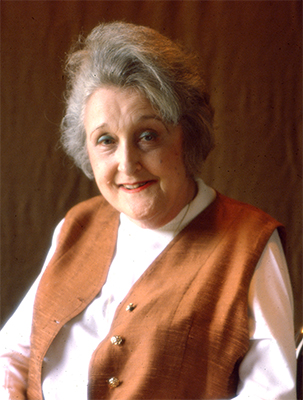Top Qs
Timeline
Chat
Perspective
Felicity Lane-Fox, Baroness Lane-Fox
From Wikipedia, the free encyclopedia
Remove ads
Remove ads
Felicity Lane-Fox, Baroness Lane-Fox, OBE (22 June 1918 – 17 April 1988) was a Conservative member of the House of Lords and champion of disability issues.[1][2]

She was born in Tadcaster, Yorkshire, the daughter of Edward Lane-Fox, who was brother of George Lane-Fox, 1st Baron Bingley. At the age of 12 she was paralysed by an attack of poliomyelitis. Despite these difficulties, she and her parents enjoyed family activities together; in September 1945, they reportedly attended horse-related events at their family seat, Bramham Park, alongside Countess Wharncliffe, Sir George Martin, Mr and Mrs Middleton Joy and other society members.[3] Like the Baroness, her family were supporters of the Conservative Party for which they reportedly held fund-raising events at Bramham Park in the 1930s.[4]
In 1963 she became a member of the executive of the National Union of Conservative and Unionist Associations.[1] In the 1976 New Year Honours she was appointed OBE for services to disabled people.[5]
On 19 May 1981 she was created a life peer, as Baroness Lane-Fox, of Bramham in the County of West Yorkshire.[6] Using an electric wheelchair, she was an active member of the House of Lords until her death.[2] She was the aunt of Robin Lane Fox and great-aunt of his daughter Martha Lane Fox, Baroness Lane-Fox of Soho.
Remove ads
References
Wikiwand - on
Seamless Wikipedia browsing. On steroids.
Remove ads
